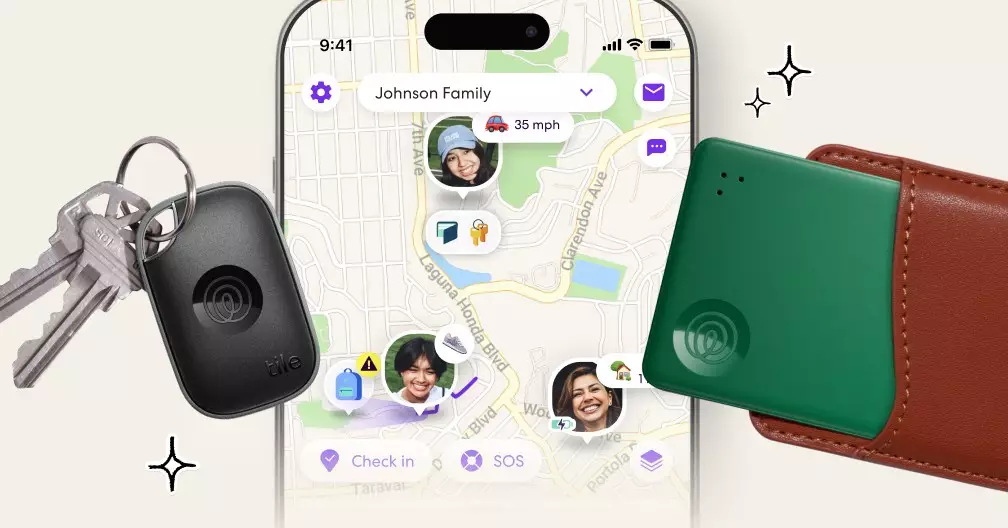In a major shift in family safety technology, Life360, a prominent player in the location sharing sector, has streamlined the use of Tile Bluetooth trackers within its app. Previously, managing these devices required switching between apps, but now users can seamlessly handle everything from a single interface. This integration marks a pivotal moment in making location tracking both more accessible and user-friendly, aiming to cater to an audience that increasingly values convenience in their tech solutions.
The integration follows Life360’s acquisition of Tile’s Bluetooth tracking technology for a substantial $205 million, a move that not only signals a commitment to enhancing their service offerings but fundamentally reshapes the landscape of how families can ensure they stay connected. With the recent updates, users can set up their Tile trackers directly within Life360, which means that the once necessary separate app is now less critical to daily usage.
A Shift in User Experience
In a world where technology often complicates lives, simplifying user experiences has become a competitive differentiator. The update allows users to receive notifications if they inadvertently leave behind a tracked item, alongside features like viewing where items were over time.
However, while these advancements showcase convenience, they also prompt users to consider the implications of being tightly integrated into a single platform. By centralizing functionality, Life360 risks creating an ecosystem that, while beneficial in terms of user experience, might lead to concerns about data privacy. The ongoing question of how location data is managed and shared with third-party services looms large.
Pricing Models and Family Safety Features
For those considering a subscription with Life360, the restructured pricing plans reveal an attractive offering for families on a budget. The introduction of SOS Alerts, now included in the $7.99 Silver plan, broadens the accessibility of essential safety features that were once locked behind higher price tiers. This adjustment demonstrates Life360’s intent to enhance family safety while avoiding the pitfalls of monetary gatekeeping concerning crucial functionality.
The premium Gold membership, priced at $14.99, still provides additional features such as extended location history, aimed at families with greater needs. While Life360’s services fundamentally center around device tracking, the app has positioned itself as a multifaceted safety solution, offering crash detection, roadside assistance, and actionable driving reports. Thus, families, particularly those with teenage drivers, need to evaluate how embraceable—yet intrusive—this collection of data may be as they strive for a balance between safety and privacy.
The Privacy Conundrum
As families weigh the advantages of Life360’s offerings, the question of privacy can understandably raise concerns. Life360 has made efforts to assure users that while it does not sell precise location data, the extent to which data can be shared with partner businesses remains vague. Families must navigate the opacity of the privacy policy to ensure they comprehend how their information may be utilized, leading to a heightened awareness of the data economy that thrives beneath the surface of these applications.
Parents, especially, should carefully assess the ramifications of sharing sensitive driving analytics and real-time location data with both the app developers and potential third-party partners. The promise of safety should always come with transparency about data usage, and as Life360 evolves, it has the responsibility to foster an environment of open communication about user data rights and protection.
A New Era of Connectivity
In sum, the integration of Tile into Life360 creates a more robust environment for family safety and connectivity. As the app continues to evolve and incorporate essential features that streamline location management, its ability to maintain user trust in an increasingly privacy-focused world will be vital. As families grapple with the trade-offs of convenience versus privacy, Life360’s developments undoubtedly signal a bright future for tech-driven family safety, if it can adeptly navigate the waters of technological advancement and user trust.

